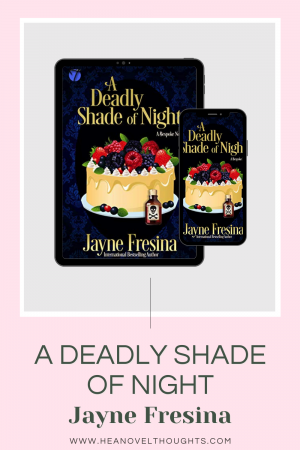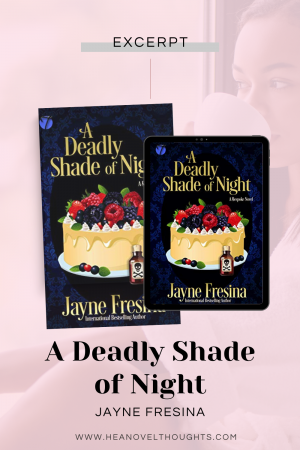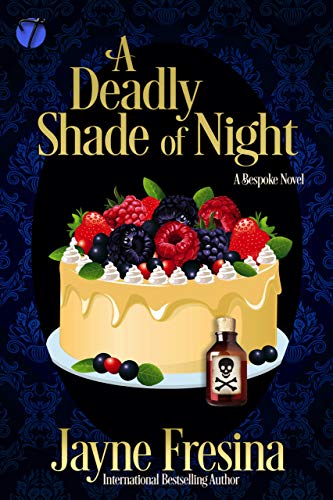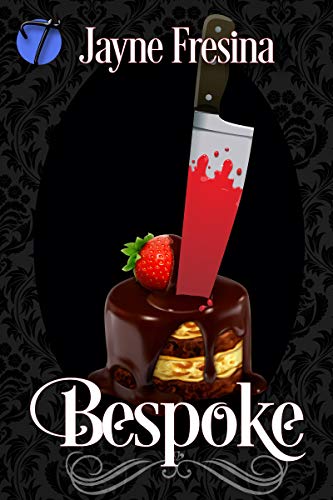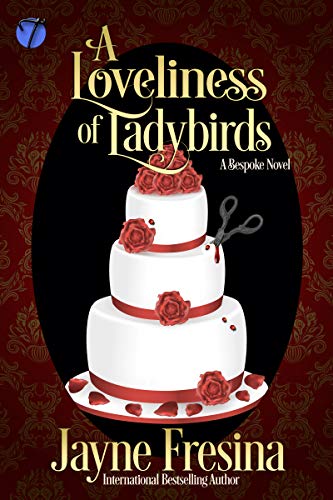Exclusive Excerpt of A Deadly Shade of Night
This excerpt of A Deadly Shade of Night may contain affiliate/referral links. It is a way for this site to earn advertising fees by advertising or linking to certain products and/or services.
Cozy mystery lover, you’re in for a real treat today! I have an exclusive excerpt of A Deadly Shade of Night that you’re gonna eat right up!
A detective with a full caseload, while trying to balance a ghost and proposing, plus a beast that may not be the beast everyone has suspected all these years.
Once you get a little taste of this ‘Bespoke’ cozy mystery you won’t want to stop!
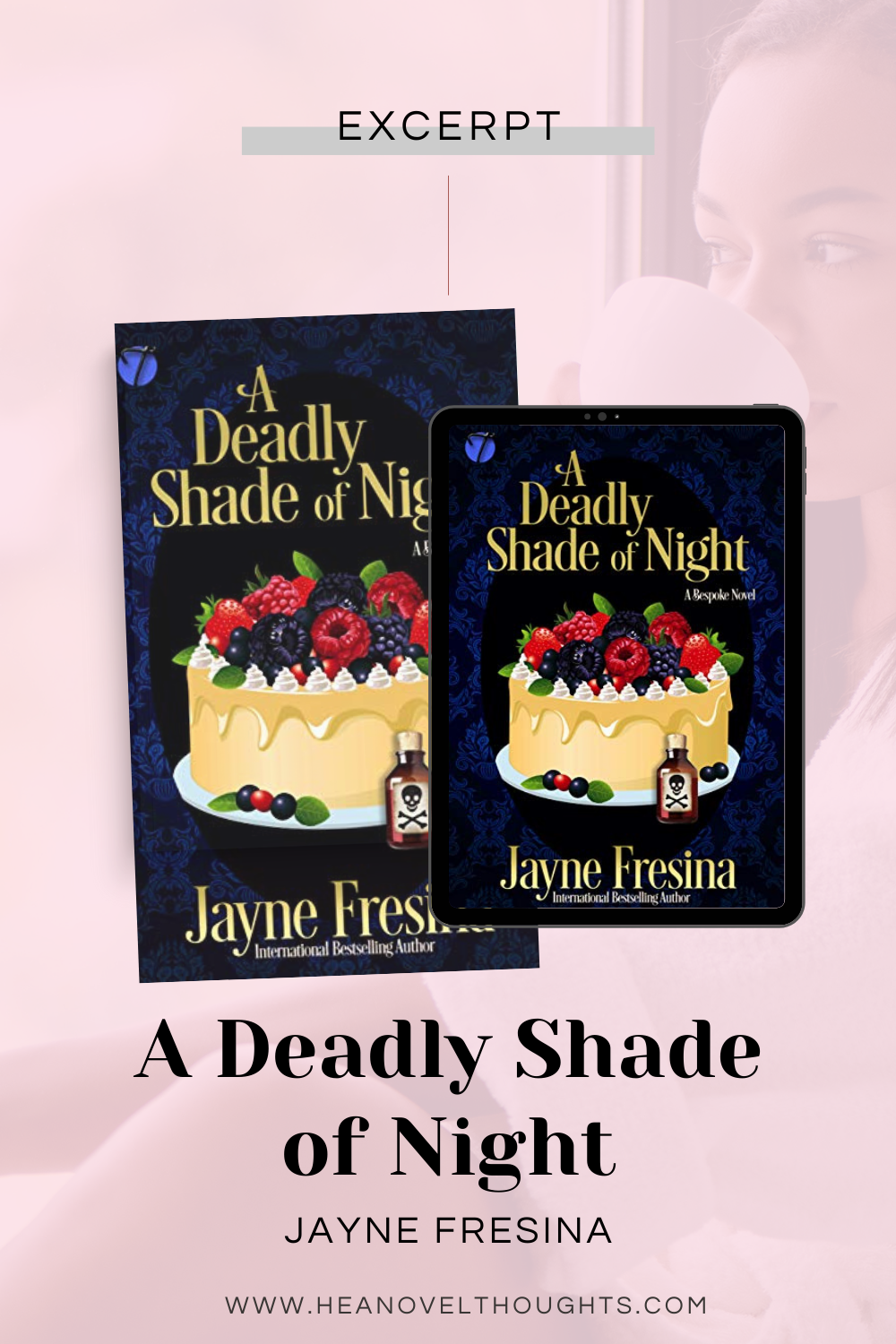
Excerpt of A Deadly Shade of Night
Although it was only a Tuesday, Lucy Greenwood was in a singing mood. Unfortunately, as she would be the first to admit, she couldn’t carry a tune in a picnic-hamper. But she was enjoying herself too much to worry about hitting a proper note, as she warbled with inharmonious gusto,
“The boy I love is up in the gallery; the boy I love is looking now at me.”
She bounced over a bump and swerved.
“There he is— Isn’t it a lovely day, Mr. Potter? — can’t you see— Good morning, Mrs. Biggins. How’s the lumbago? — waving his handkerchief, as merry as a robin that sings—Oops, pardon me— in a tree.”
The wheels of her bicycle rattled along in accompaniment to the song, as she rode down the cobbled street, scattering wildlife and puddle water in all directions. With a reckless velocity that tested the dependability of her hatpins, the fortitude of her corset laces and the flexibility of her stocking garters, Lucy caused more than a few startled, wondering and disapproving glances as she flew by.
Such was her familiarity with shocked faces, she barely noticed them anymore. But today, having seen an elderly matron stumble against a pillar box in a near faint; a nanny rush to comfort her sobbing charges in a perambulator, and a costermonger trip over his barrow in haste to escape, the chastened songbird cut short her warbling. That bicycle was undoubtedly enough shock for anybody of a genteel disposition on the streets of York, she thought.
‘A Deadly Shade of Night’ by Jayne Fresina
There was probably only so much impropriety one female could exhibit, before somebody looked to have her arrested. And she had a business to run, so she really could not afford to be clapped in irons.
Probably better not to careen about being insufferably smug on her bicycle and drawing more attention to herself.
Lucy knew how fortunate she was, as a woman who answered to nobody; a rarity in this world. Unwed at nine and twenty, motherless for thirteen years, with no father or brother to smother her in his lofty wisdom, and untroubled by the counsel of any matronly companion— at least, none to whom she paid solemn heed— Miss Greenwood was a bird flying freely, her wings unclipped. In this state of autonomy, she was often subjected to the envy, confusion and censure of trapped, discontented busybodies. But on that pleasant morning, they might cast as many frowns and rumbling tut-tuts of disapproval as they wished in the direction of her ankles, subsequently making conjectures on her virtue, or lack thereof. She, a modern woman, with her Rover Safety Bicycle and her ‘Turkish Dress’ pantaloons, could leave them behind, both physically and mentally.
That was entirely her trouble, as a certain Detective Inspector Ptolemy Deverell would say. She was a woman on the loose, unguarded and unguided. He had implied— usually with nothing more than the movement of his eyebrows— that he found her too independent, unconventional and rebellious.
But it was not all discouragement from his side, for the bicycle on which she rode today was a present from none other than Tolly Deverell himself. Oh yes, this man, who had declared that a woman travelling about on her own and getting things done without relying upon a “sensible” man, was a situation likely to end in tragedy, broken bones or a law suit, had purchased this most autonomous and modern device for Lucy. It was delivered anonymously, of course, but she knew it was from him. He was the only soul to whom she had ever expressed her desire for such an item.
In presenting a gift to an unmarried woman who was not a relative, he must be conscious of the impropriety and yet, apparently, this guarded, discreet and modest gentleman was unable to resist the temptation or the extravagance. It had arrived on her doorstep not long after they met, giving her the first hint of hope; proof that he could act on impulse and be delightfully unpredictable. Not always the stick-in-the-mud he pretended to be.
In her peripheral vision, Lucy spotted a woman walking along the bridge. It was the lady’s bonnet that caught and held her attention the longest, actually, for she had a keen eye for fashion and pretty embellishments, especially those trimmed with a touch of scarlet. Without doubt, it was a fancy born during her very first days at boarding school, when she, a freckled, plump and awkward thirteen-year-old newcomer, was smitten by the prettiest, most elegant girl in school: Miss Fiona McGillacuddy, a hotelier’s daughter from Inverness, who always wore her midnight curls in pristine, scarlet hair ribbons and had no idea that Lucy even existed.
Young Miss Greenwood, of the scabby knees and freckles, had promised herself that although she could never hope for those lush, ebony curls, she would one day possess the ribbons and the stylishness of Miss McGillacuddy.
When she first arrived at boarding school, Lucy wore garments that were plain, home-stitched, borrowed and altered. She had no knowledge of fashion, and possessed a thick Yorkshire accent. But none of that put any boundaries on little Lucy’s ambition— or, as some would have it, her “impertinent nerve”— not even back then. She would not let those humble beginnings stop her.
Scarlet ribbons, she had thought, were not only for the Fiona McGillacuddys of the world. Not for the world as Lucy would make it, in any case.
Today, having admired that fine hat on Lendal Bridge and briefly reminisced over schoolgirl infatuations, her gaze resumed its perusal of the road ahead. She never glanced over her shoulder to catch a glimpse of the woman’s face under that bonnet. Had she seen that strange expression, and being a soul of brazen spirit, with a bizarrely greater sense of justice than of fear, she would have leapt off her saddle, turned around, and asked if she might be of assistance.
Lucy Greenwood, it should be explained, once came to the aid of two startled ladies in a railway carriage when she fought off a half-naked madman, using a hatpin and the point of her umbrella; then restrained him with a boot-heel to the windpipe, until the train stopped at the next station. It was a story that made the newspapers, complete with sensationalized illustrations— although, should you ever ask her about it, she would protest that the picture looked nothing like her; that they unaccountably drew her with very large ears and wearing an ugly, old-fashioned traveling suit that she would never wish to be seen in, even if she lay trampled and unconscious beneath an omnibus.
Vanity— again, she would be the first to admit— was another of her most regrettable traits and the reason why, despite being a member of the Rational Dress Society, she still wore corsets and cherished a far greater fondness for silk and lace than was practical for a New Woman. Again, she thought, she could blame that on Miss McGillacuddy, who, from an aloof distance, first opened this humble “Yorkshire Pudding’s” eyes to fashion and the power of pretty things.
‘A Deadly Shade of Night’ by Jayne Fresina
Lucy had decided that a woman could be just as much of a force to be reckoned with in elegant, lively, handsome fashion, as in stout woolen underthings, severe collars and plain homespun.
Today, however, she missed her opportunity to play the bold avenger in any sort of outfit. Lucy did not see the pale woman hesitate beside the parapet, wring her hands together and stare after the passing bicycle. Instead, she rode on, humming a slightly less exuberant and more thoughtful rendition of ‘The Boy I Love is Up in the Gallery’, while flirting with the idea of redecorating one of her old hats, since the budget wouldn’t stretch to a new one.
She gave no more thought to the woman she had seen on the bridge. At least, for now.
Of course, we pass people every day, as we go about our normal lives. Although we might glimpse their faces, we can have no inkling of their hearts and minds, of their celebrations or their strife. They are mostly forgotten once out of sight. Their story is a closed book to us, unless it happens, one day, to entwine with our own.
But that strange woman in the fancy bonnet had now tangled her scarlet ribbons most thoroughly and insidiously around Lucy’s story.
* * *
“That wayward missy of yourn is out there again on two wheels, showing off her ankles and scaring respectable, elderly ladies into palpitations,” Sergeant Moffat announced. “Something ought to be done about it.”
Tolly sighed and shook his head. “I quite agree. When you come up with a solution to Miss Greenwood and her ankles, do let me know. I confess myself adrift in the matter.” He no longer bothered trying to pretend that he didn’t know who people meant by the term, “Wayward Missy”, just as he’d given up correcting them when they referred to that particular woman as his.
“There ought to be a law against it,” Moffat grumbled.
“Alas, queen and parliament have abandoned us to her mercies, left us to fend for ourselves. And to eat cake.”
“Good, respectable, honest folk shouldn’t have to see all that with their eyes.”
“Or with anything else.”
“On a Tuesday too!”
“As if Tuesday has not enough to deal with already. I know how it feels.”
“Whatever will become o’ the world with women like that about? Doing whatever they please.”
“One shudders to imagine.”
“Coming and going about the place, giving opinions where they’re not wanted. The Good Lord would not want women traveling about on wheels. He knows they haven’t the brains, the judgement, or the balance fit for two wheels.” Sergeant Moffat raised his voice in outrage, “’Appen she were singing too!”
“Stop! Stop, I beg you. Is there no end to the atrocities?”
“O’ course, if wayward missy were married, she’d come to heel.”
“Do you think so, Sergeant Moffat? Is a husband all that she requires to fix her?”
“Oh aye. The fellow who married her would take her in firm hand and put a stop to all those capers.”
“A most courageous, selfless and valiant endeavor. Worthy of a medal. Even if it is likely to be posthumous.”
As was often the case, Tolly’s sense of humor was wasted.
“It would be a service to mankind,” said the sergeant. “We’d all be grateful to the fellow.”
“Well, whoever might be up to the task, let’s hope he doesn’t take too long about it.” Tolly smiled pleasantly. “For all our sakes.”
Moffat gave him a dark look and, as the detective walked away, he growled, “Bloody tortoise.”
Tolly called out over his shoulder, “There is a reason why that creature has survived for several hundred million years.”
